Question And Answer
Publications
Articles, publications, books, tools and multimedia features from the U.S. Institute of Peace provide the latest news, analysis, research findings, practitioner guides and reports, all related to the conflict zones and issues that are at the center of the Institute’s work to prevent and reduce violent conflict.
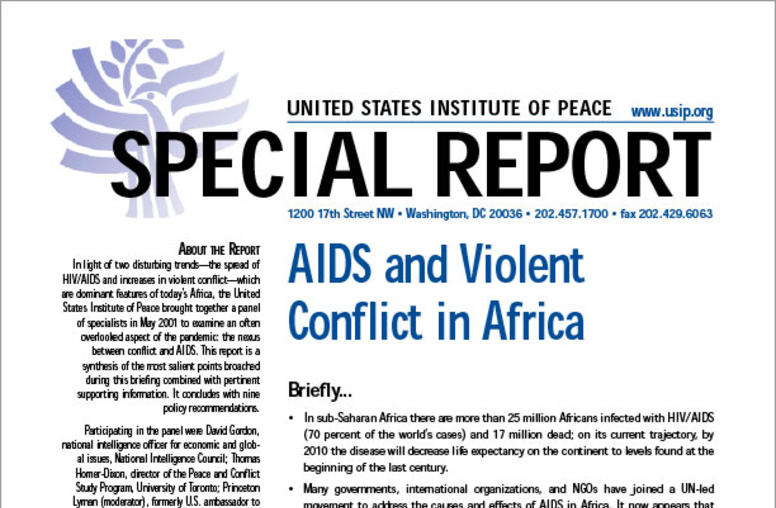
AIDS and Violent Conflict in Africa
In light of two disturbing trends--the spread of HIV/AIDS and increases in violent conflict--which are dominant features of today's Africa, the United States Institute of Peace brought together a panel of specialists in May 2001 to examine an often overlooked aspect of the pandemic: the nexus between conflict and AIDS. This report is a synthesis of the most salient points broached during this briefing combined with pertinent supporting information. It concludes with nine policy recommendation...
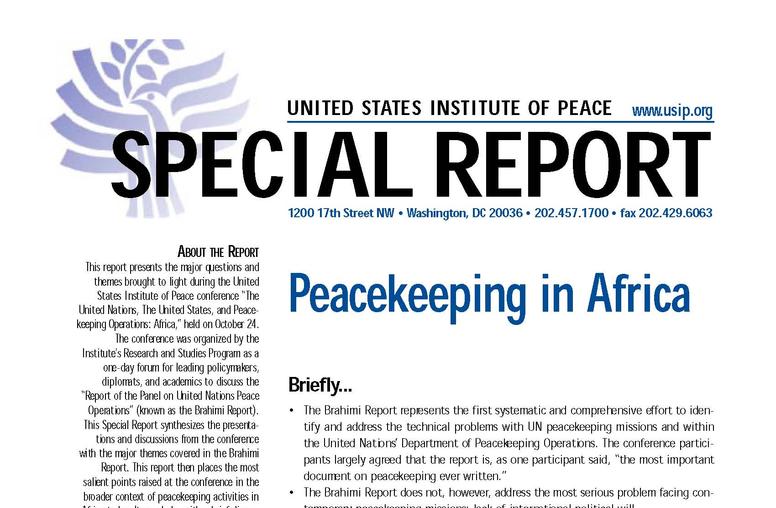
Peacekeeping in Africa
Summary PART ONE The Brahimi Report represents the first systematic and comprehensive effort to identify and address the technical problems with UN peacekeeping missions and within the United Nations' Department of Peacekeeping Operations. The conference participants largely agreed that the report is, as one participant said, "the most important document on peacekeeping ever written." The Brahimi Report does not, however, address the most serious problem facing contemporary peace...
Commission of Inquiry: Côte d’Ivoire
Commission of Inquiry: Mediation Committee for National Reconciliation Duration: 2000 – 2001 Charter: Presidential Decree Commissioners: 28 Report: No report
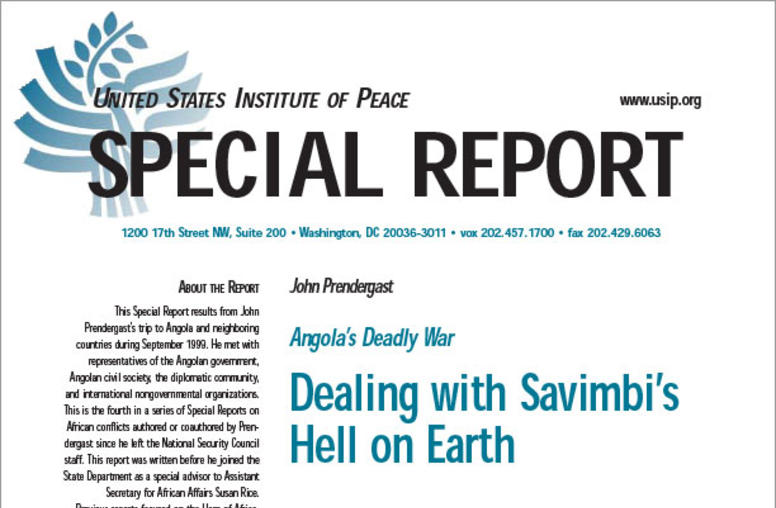
Angola's Deadly War: Dealing with Savimbi's Hell on Earth
Summary The rebel organization National Union for the Total Independence of Angola (UNITA) has plunged Angola back into a recurring nightmare of war and human rights depredations. Dissatisfied with any scenario in which he is not Angola's president, UNITA leader Jonas Savimbi has chosen war over peace, for the second time this decade.
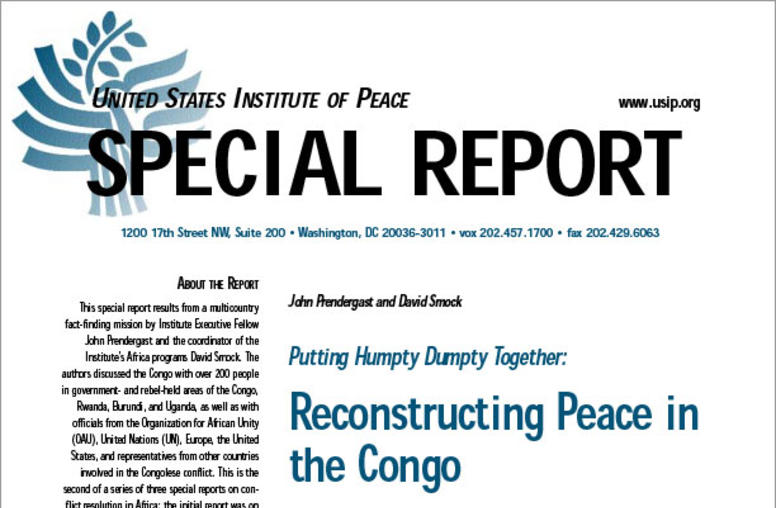
Putting Humpty Dumpty Together: Reconstructing Peace in the Congo
Summary Standing today at a crossroads between war and peace, the Congo threatens either to drag the entire Central African region into a quagmire of conflict or to provide the engine of economic reconstruction necessary for stability and democratization.
Truth Commission: Nigeria
Truth Commission: Human Rights Violations Investigation Commission Duration: 1999 - 2002 Charter: Instrument No. 8 of 1999 Commissioners: 8 Report: Public report; released unofficially
Peace Agreements: Guinea-Bissau
Agreement Between the Government of Guinea Bissau and the Self-Proclaimed Military Junta (11-01-1998) Posted by USIP Library on: November 16, 1998 Source Name: Embassy of Guinea-Bissau, Washington, D.C. Date faxed: November 6, 1998
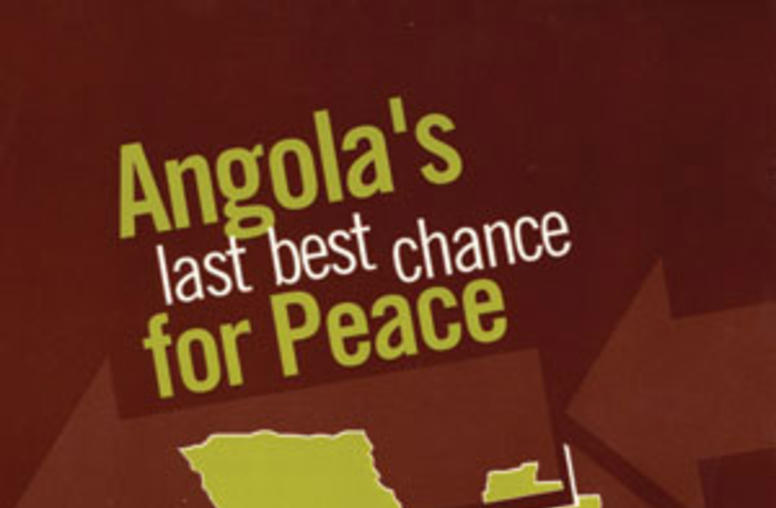
Angola's Last Best Chance for Peace
Since independence, Angola has witnessed twenty-plus years of civil war and a string of broken peace agreements. “It is not difficult to be a cynic about Angola,” notes Ambassador Paul Hare. Yet Hare and other dedicated diplomats have continued to persevere in their quest for a lasting solution to the Angolan conflict.
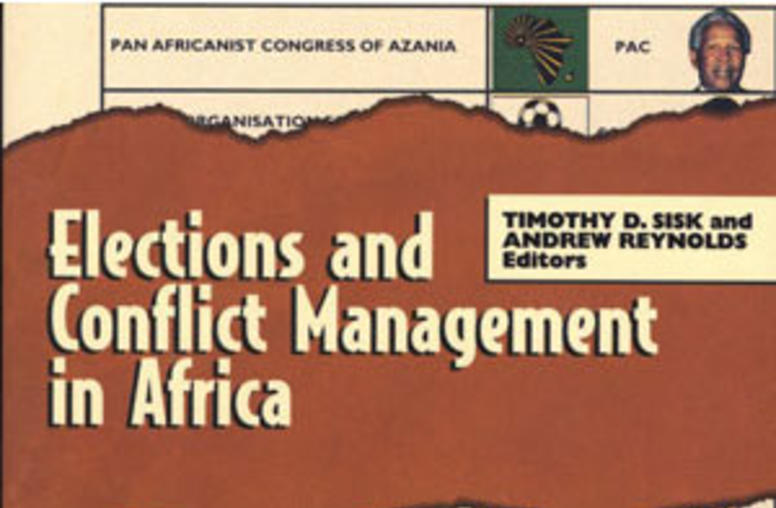
Elections and Conflict Management in Africa
Elections have emerged as one of the most important, and most contentious, features of political life on the African continent. In the first half of this decade, there were more than 20 national elections, serving largely as capstones of peace processes or transitions to democracies.
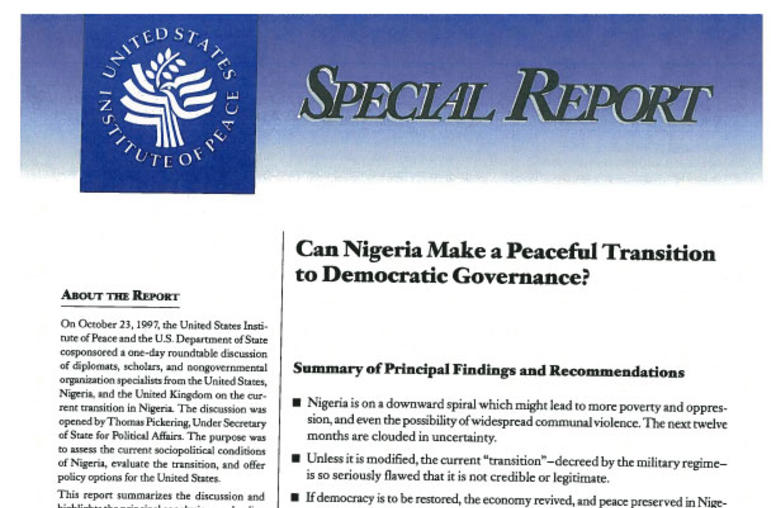
Can Nigeria Make a Peaceful Transition to Democratic Governance?
On October 23, 1997, the United States Institute of Peace and the U.S. Department of State cosponsored a one-day roundtable discussion of diplomats, scholars, and nongovernmental organization specialists from the United States, Nigeria, and the United Kingdom on the current transition in Nigeria. The purpose was to assess the current sociopolitical conditions of Nigeria, evaluate the transition, and offer policy options for the United States.